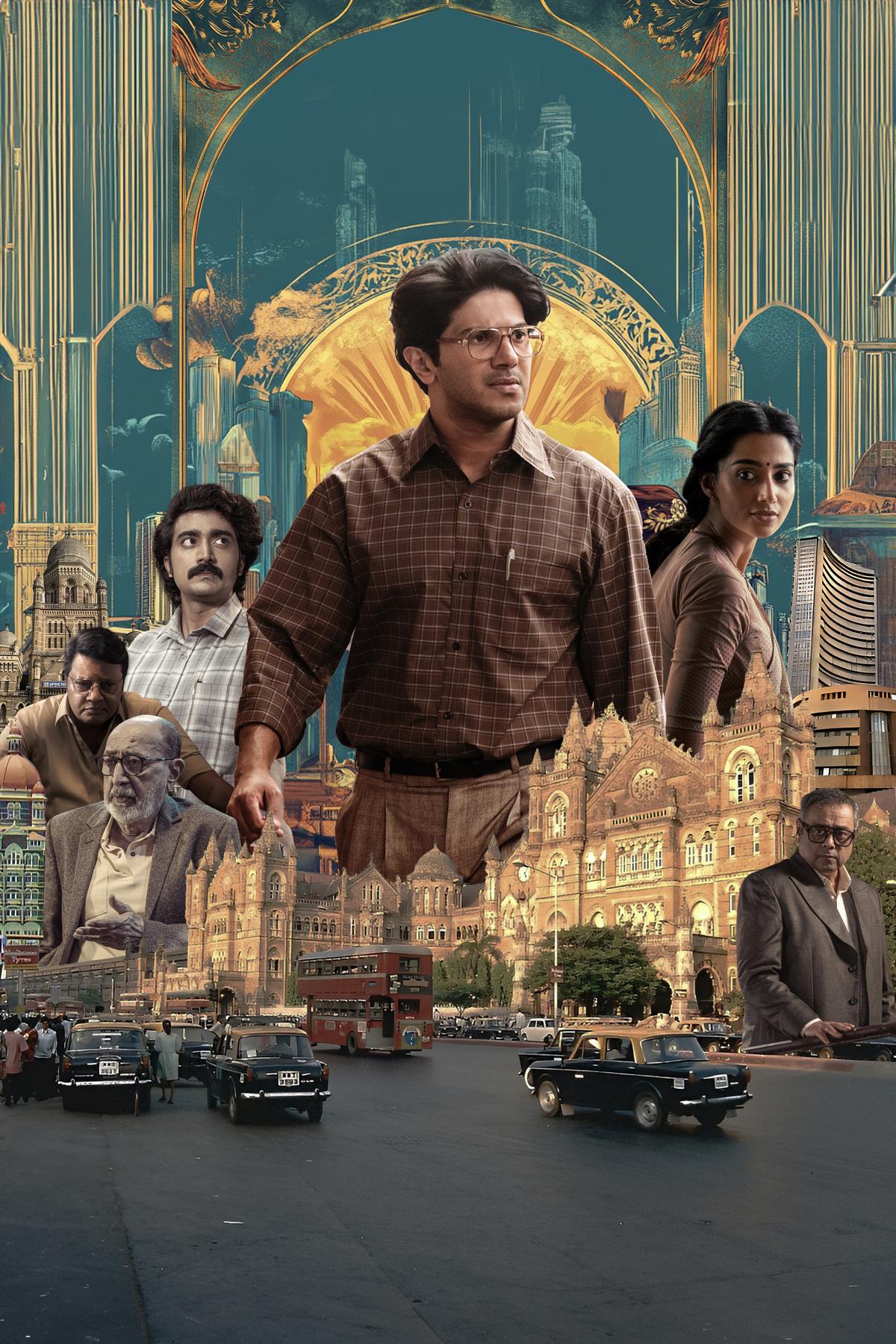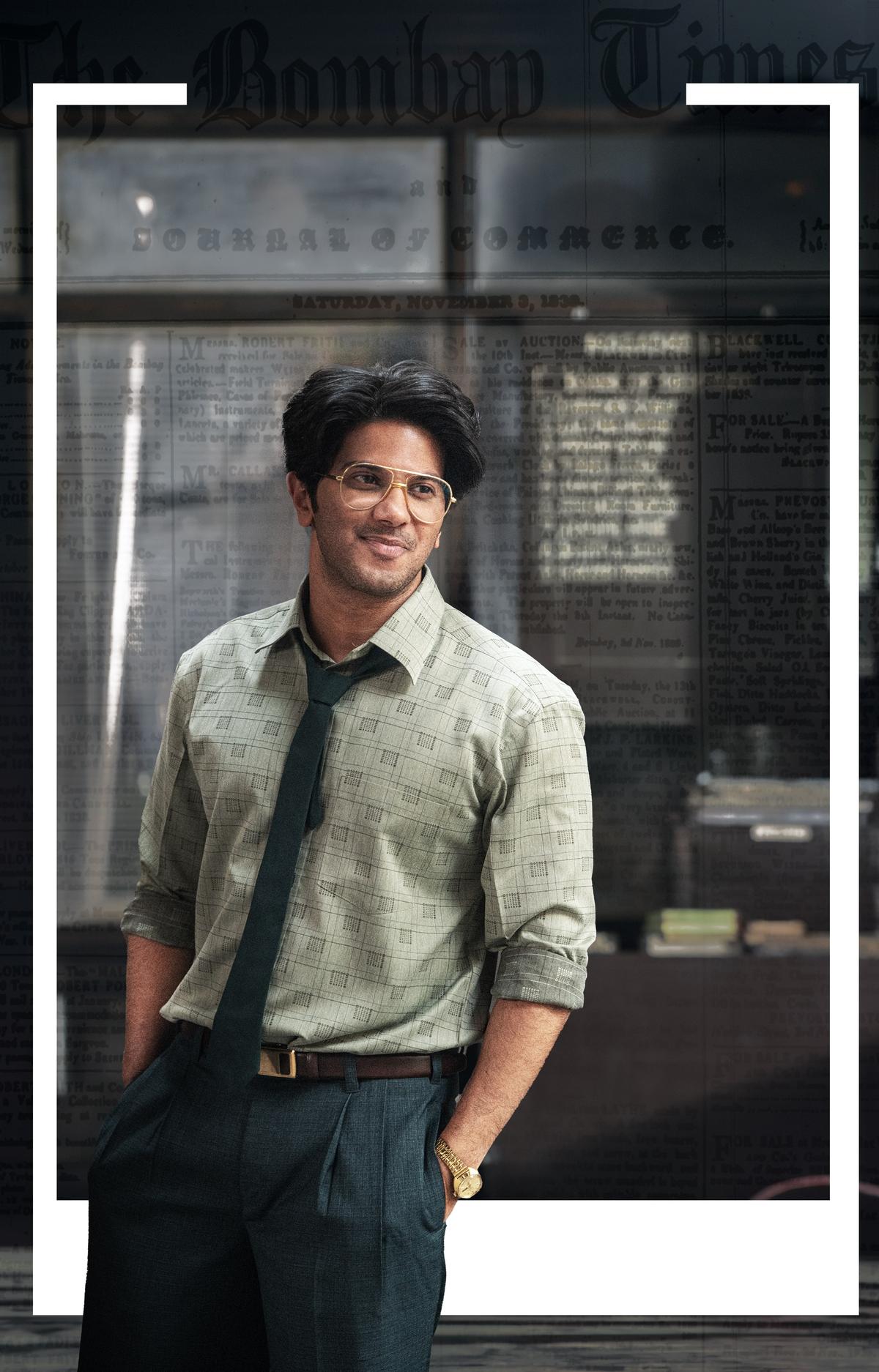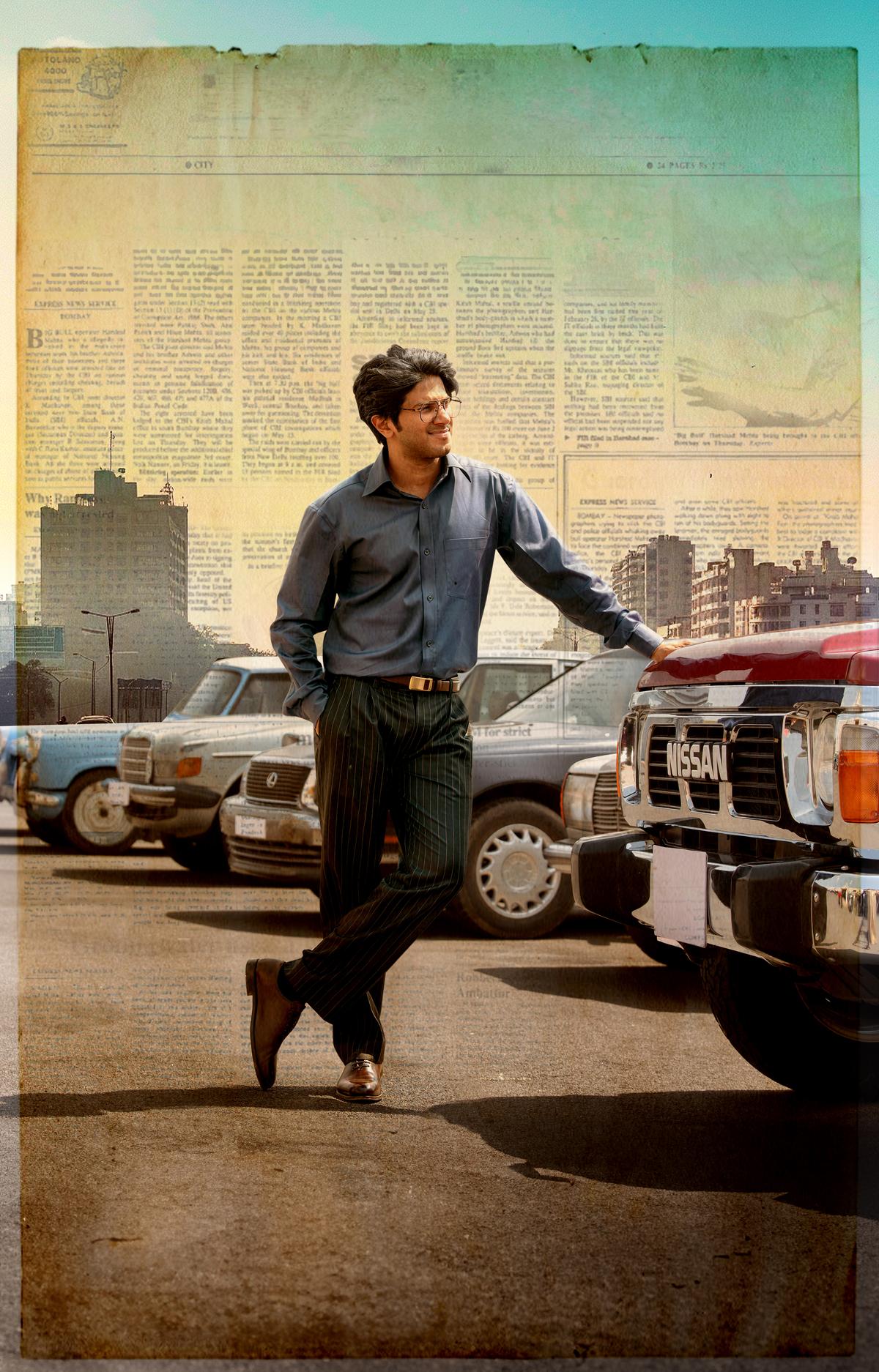“At the start of my career, if anyone had told me that I would receive such love from the Telugu audience, I would not have believed it. The acceptance has been surprising and shocking in equal measure,” says actor-producer Dulquer Salmaan. In his new Telugu film, Lucky Baskhar directed by Venky Atluri, releasing in theatres on October 31, Dulquer will portray a middle class man named Baskhar who indulges in banking fraud to meet the financial needs of his family. Dulquer is also distributing THEthe Telugu period drama starring Kiran Abbavaram and releasing the same day, in Malayalam.
During this interview at the Annapurna Studios Annexe, Hyderabad, Dulquer reminisces how opportunities from Tamil and Hindi cinema came his way after Ustad Hotelhis second Malayalam film, in 2012. Growing up in Chennai and fluent in the language, Tamil cinema was part of his scheme of things. “There were also inquiries from Hindi cinema.” The surprise came from Telugu — the Savitri biopic Mahanati, followed by the musical romance drama Sita Rama. He also featured in a cameo in Kalki. Incidentally, all these films, produced by Vyjayanthi Films were period dramas and have fetched Dulquer the tag ‘retro star’.
Dulquer mentions that wherever he travels, he is greeted warmly by the Telugu diaspora. “When I choose Telugu films, I want to make sure that this section of the audience is happy.”
A common man’s story

Dulquer Salmaan, Meenakshi Chaudhary, Sai Kumar and others in ‘Lucky Baskhar’
Lucky Baskharproduced by Sithara Entertainments and directed by Venky Atluri, is set in Bombay, in the late ‘80s and early ‘90s. Dulquer was drawn to the common man’s story. “When Venky narrated it, it felt like a real-life story. Baskhar has a fixed income and deals with negative cash flow each month. As the sole breadwinner of his family, he supports his ailing father, wife, son and two siblings. There are obligations and unforeseen expenses. I see it as India’s story. A large percentage of our population has a fixed income but random expenses come up.”

The rarely-explored finance fraud backdrop of the story was not enough for Dulquer to give his nod. “I have a strong ‘logic meter’, so I kept questioning Venky; He had done his research and had all the answers,” Dulquer explains, adding that when a story takes a deep dive into a scam, it can turn preachy. “Venky has walked the fine line between entertainment and a human drama.”
Director Hansal Mehta’s Hindi web series Scam 1992 and the iconic Hollywood films The Wolf of Wall Street and The Big Short were reference points, but Dulquer asserts that Lucky Baskhar is rooted in the Indian milieu and has an original story. “Venky had directed three love stories until then and was eager to break that pattern. During lockdowns, he had to rethink his approach to cinema and was keen to explore a new genre with each film. Sir (Vaathi in Tamil) was the first step, discussing issues in the education sector.”
Baskhar is a character with shades of grey, but Dulquer hopes the audience will see the reasons for his actions and perhaps root for him. When asked how mean and negative the character is, he says, “I cannot reveal much; Baskhar’s actions are justified to an extent. However, he faces the music when he takes things too far.”
Dressing the part

Dulquer Salmaan plays a banker in ‘Lucky Baskhar’
| Photo Credit:
Special Arrangement
Be it in his Telugu films, Malayalam film Kurup, or his new Tamil film Kaanthawhich he is co-producing with Rana Daggubati, Dulquer has been stepping into different period settings, from the 1950s to the ‘90s. He reckons that a part of the characterisation comes from the costumes and the body language.
Fashion designer Archana Rao, who has worked with him for Mahanati, Sita Rama, Kalki, Lucky Baskhar and is on board for Kaanthasays as Baskhar, Dulquer had to look like a middle class man. Moving away from the dapper looks he sported as late actor Gemini Ganesan in Mahanatithis time around, they chose clothes that are not always tailored in flattering fits.
Dulquer says, “When I first saw the suits and shirts Archana had designed for MahanatiI was impressed with the finer details like an elastic band on the sides of the trousers and the finish. Since she is a designer, she brought in that aesthetic. A lot of our confidence in portraying a character comes from what we wear, and working with her has been wonderful. We are also collaborating for my next Malayalam production.”
Archana mentions how Dulquer, abreast with fashion trends, comes up with suggestions. For instance, belts that were popular in the 1980s. Dulquer acknowledges, “I grew up watching my dad (Malayalam superstar Mammootty) dress in style. I wanted to be like him. I had an eye on men’s fashion, and when I worked abroad briefly, I would buy things for Dad and style him. Nowadays with platforms such as Pinterest, it is easy to look for references.” For Lucky Baskharreferences also came from photographs of actors of the ‘80s. “We saw how they styled themselves offscreen, particularly the hairstyle. The common man has always been influenced by the stars.”
Dulquer and his wife Amal love to window shop while travelling. “But we are not obsessed with expensive things,” he hastens to add.
Drama from the past
Period dramas set in the 1950s to the early 2000s have become increasingly common in Indian cinema. Dulquer says such a setting lends more scope for drama. “Sita Rama cannot happen today when we are all connected through smartphones. Writing a letter and waiting for a response is part of the romance drama.”

‘Lucky Baskhar’ has a story that deals with financial scam
| Photo Credit:
Special Arrangement
Does it also have to do with filmmakers wanting to transport the audience into a different world, to circumvent their diminishing attention spans? Dulquer agrees, and adds, “There is always a fascination to discover a world we have not lived in.” He recalls how Malayalam cinema had its share of period dramas until the ‘80s. “In the ‘90s when the business models changed, it was not always viable to produce big budget period films. Now we are witnessing a revival.”
Dulquer recalls being fascinated with the set design and the props during Mahanati. “Each day it was as though I was stepping into an amusement park. I would take photographs of the props, the stationery… So much of design has changed now since we have a minimalistic approach to things. Setting a film in the past can make it an immersive experience.”

Recreating Bombay of the ‘80s
For Lucky Baskharthe unit filmed a few scenes at Nariman Point and Colaba in Mumbai and majorly relied on sets that recreated the Bombay of that era. “Baskhar’s house felt lived in. When all the actors arrived in their costumes, it felt true to that era.” Production designer Banglan and cinematographer Nimish Ravi, who worked on Dulquer’s kurupdid the honours. The actor explains, “For kurupwe filmed nine or 10 days in Mumbai for exterior shots and the rest were on sets. The bank set and the streets in Lucky Baskhar had so much character. At the end of the day’s shoot, we would all file out like bank employees after work.”
Courting Telugu
Dulquer has made it a point to dub in Telugu. “People identify my voice, which I consider a blessing.” When Mani Ratnam’s Okay Kanmani was dubbed in Telugu as Okay BangaramDulquer’s voice was dubbed by actor Nani. Since MahanatiDulquer, encouraged by director Nag Ashwin and producers Priyanka and Swapna Dutt, began dubbing in Telugu. “I would get cues and corrections from the director and sound engineer when my (Malayalam) accent is pronounced. I think I have improved since then. Fewer corrections come my way nowadays.”
Next, he is working on Kaantha and has signed two Telugu films — Aakasamlo Oka Taara produced by Vyjayanthi films and directed by Pavan Sadineni and another film produced by Sudhakar Cherukuri. “I try to do films in different languages, but things do not always go as planned. Kaantha has been in gestation since 2019 and went on floors in 2024. We are exploring something new and it is a journey of discovery for all of us. It is beautiful that one day I am speaking in ‘senthamizh’ (a pure version of Tamil from the past) for Kaantha and the next day I am in Hyderabad promoting my Telugu film. The diversity in language, cuisine, attire and festivities in India always fascinates me.”
Before winding up, I ask him if he still has those fan mails — hand-written letters by women who addressed him as Ram, his character in Sita Ramawhich he shared on social media? “Oh yes, I have held onto the mails in which a lot of effort seems to have gone in. Sometimes people send me craft boxes with so much detail and enquire about my wife and son,… it is beautiful. As long as I can do good work and not disappoint people, I am happy.”
Published – October 23, 2024 03:54 pm IST






